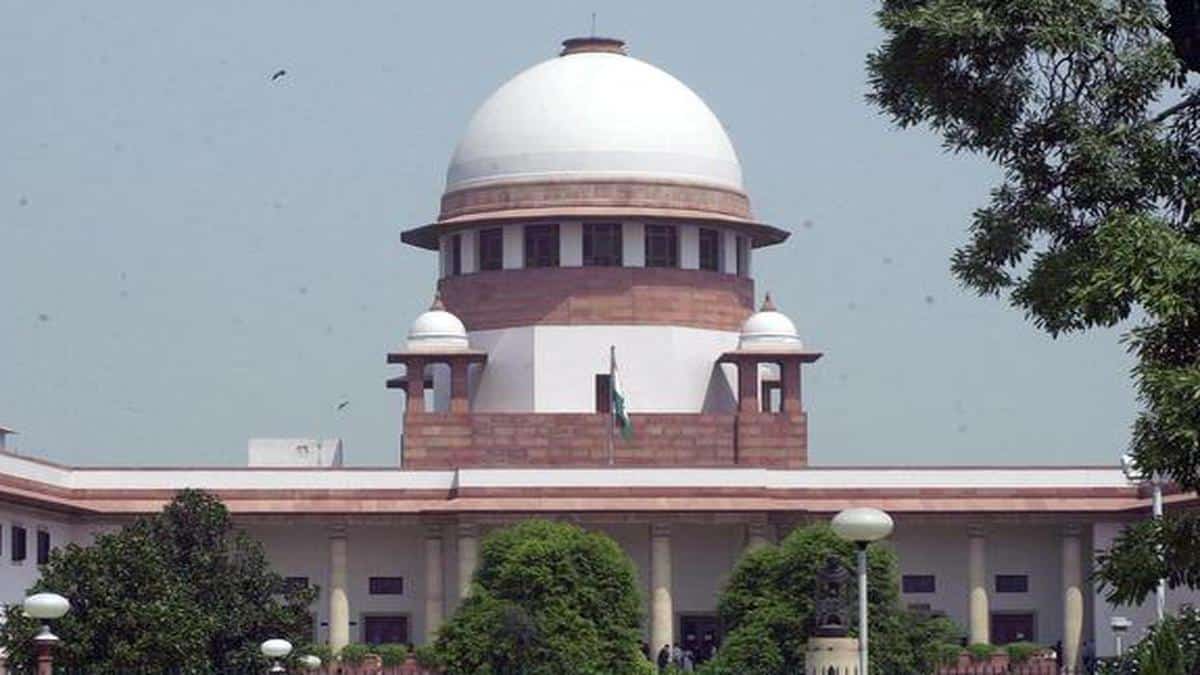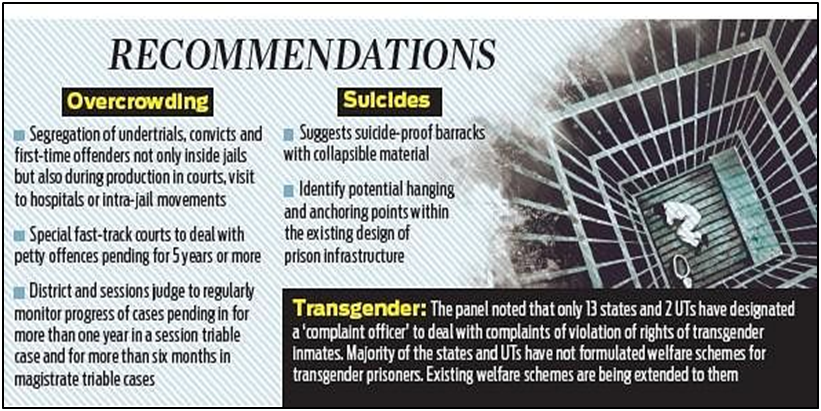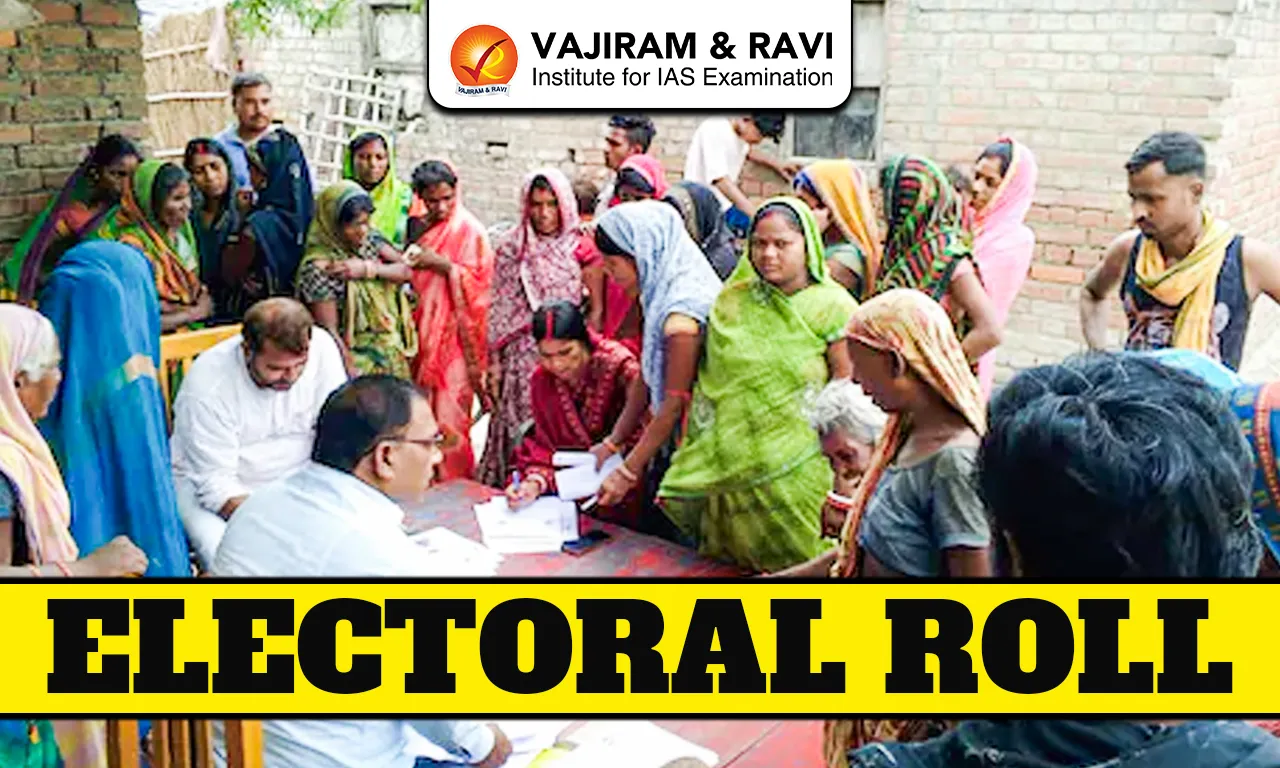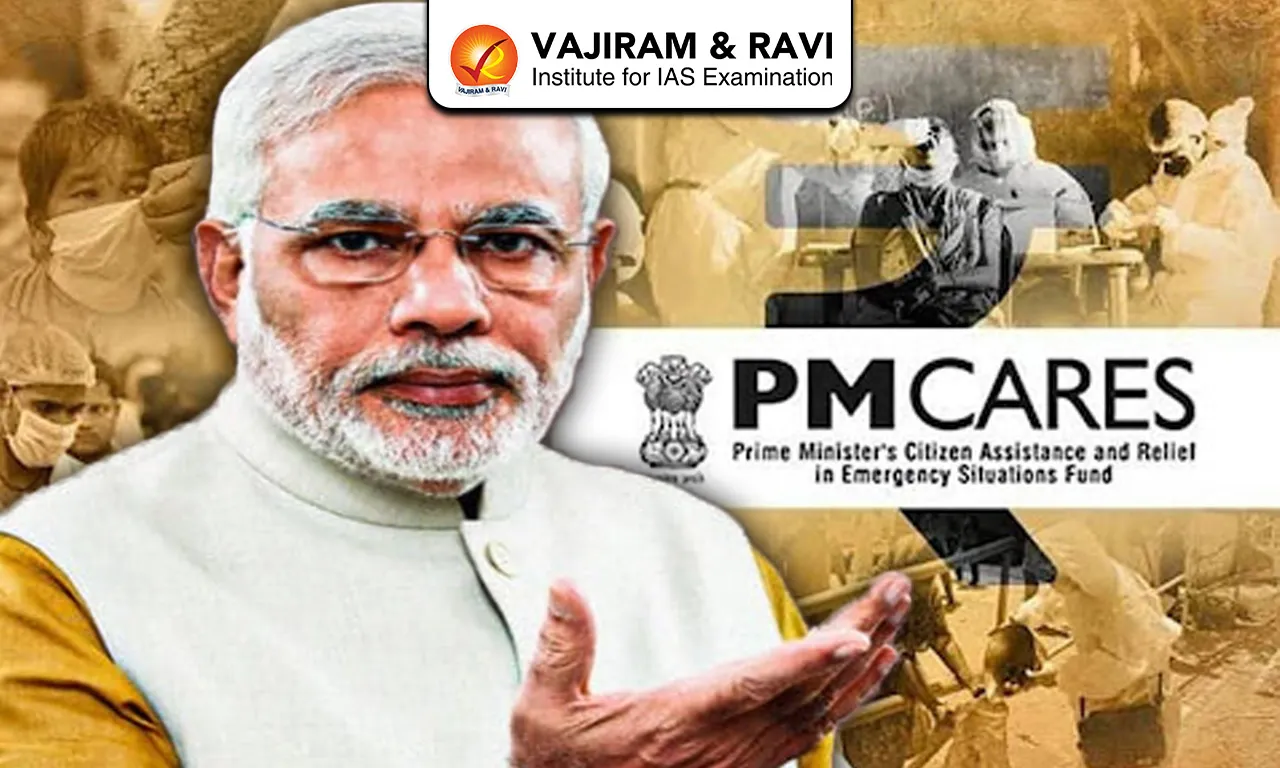What’s in Today’s Article?
- Why in News?
- About Justice Amitava Roy Committee
- Major Findings of the Amitava Roy Committee
- Recommendations made by the Amitava Roy Committee
Why in News?
- Recently, the Supreme Court sought views of the Central and the State Governments on the Justice Amitava Roy Committee report.
About Justice Amitava Roy Committee:
- In September 2018, the Supreme Court had formed a Committee on Prison Reforms chaired by former judge, Justice Amitava Roy.
- Purpose – To examine the various problems plaguing prisons in the country, from overcrowding to lack of legal advice to convicts to issues of remission and parole.
- The decision was taken based on a letter from former Chief Justice of India R.C. Lahoti highlighting the overcrowding in prisons, unnatural deaths of prisoners, gross inadequacy of staff and the lack of trained staff.
- Objectives of the Committee –
- Examine the extent of overcrowding in prisons and correctional homes & recommend remedial measures;
- Availability of legal aid and advice;
- Grant of remission, parole and furlough;
- Reasons for violence in prisons and correctional homes;
- Recommend measures to prevent unnatural deaths and assess the availability of medical facilities in prisons and correctional homes.
- The court asked the committee to complete the collection of data and information and submit the report in a year.
- The committee submitted the final report in December, 2022.
Major Findings of the Committee:
- Crowding among Undertrials –
- Prisons in India are teeming with people waiting for the completion of trial or investigation, also called undertrials.
- Globally, one in three prisoners are undertrials. In India, three out of four, or about 77% of the total prison population in 2021, were undertrials.
- Conditions of Female Prisoners –
- Women prisoners face far worse conditions than men in terms of access to basic facilities.
- The report said that prisons only in Goa, Delhi and Puducherry allow female inmates to meet their children without any bars or glass separation.
- Less than 40% prisons provide sanitary napkins to female inmates.
- Only 18% of female prisoners get exclusive women’s prison facilities, and functional women’s prisons exist in just 15 states and union territories.
- Condition of Transgender Prisoners –
- Prison authorities of only 13 states and two Union Territories have designated a ‘complaint officer’ to deal with complaints of violation of rights of transgender inmates in prisons.
- Majority of the states and Union Territories have not formulated welfare schemes for transgender prisoners.
- Number of Suicide Cases –
- Suicide is a major cause of the 817 unnatural deaths reported in jails across the country between 2017 and 2021.
- out of the 817 unnatural deaths, 660 were suicides with Uttar Pradesh recording the highest number of suicides at 101 during this period.
Recommendations made by the Committee:
- Reduce Violence amongst Prisoners –
- The Committee on Prison Reforms has recommended mandatory segregation of undertrials, convicts and first-time offenders inside jails, while producing them in courts, during their hospital visits, etc.
- Prison administration should strive to comprehensively implement national and state health insurance schemes such as the Ayushman Bharat scheme, Chiranjeevi Health Insurance Scheme and similar state health insurance schemes in prisons.
- It further suggested the need for a robust grievance redressal mechanism for the prisoners for registering their complaints.
- Speedy Trials –
- The issue of overcrowding lies majorly with the undertrial population in prisons.
- The committee recommends that special fast track courts to be set up to extensively deal with petty offences and for cases pending for five years or more.
- The committee has recommended tasking district and sessions judge with the responsibility of regularly monitoring the progress of cases pending in courts where the accused is in custody for more than one year in a session triable case and for more than six months in magistrate triable cases.
- Use of Video Conferencing as a Medium –
- The committee has recommended that as far as possible, production of senior citizens and sick prisoners in courts should be done through video-conferencing medium.
- Prevention of Suicide–
- Against an increase in cases of suicide by hanging, the panel while calling death in prisons as one of the worst violations of human recommended or suicide-proof barracks with collapsible material.
- The committee said the jail staff should be regularly provided the requisite training to recognise “signs of depression and aberrant behaviour”.
Q1) In which Subject of the 7th Schedule does Prison and its Administration listed?
Prisons, and their administration, is a state subject covered by item 4 under the State List in the Seventh Schedule of the Constitution of India.
Q2) What is the purpose of Judicial Custody?
In Judicial Custody, the suspect becomes the responsibility of the Court. it opines the interrogation being necessary under the facts produced before the court. The provisions for holding a person in custody for the purpose of furthering investigation in India are governed by Section 167 of the Code of Criminal Procedure.
Source: Jail reforms: SC panel moots sweeping changes | Hindu
Last updated on February, 2026
→ UPSC Notification 2026 is now out on the official website at upsconline.nic.in.
→ UPSC IFoS Notification 2026 is now out on the official website at upsconline.nic.in.
→ UPSC Calendar 2026 has been released.
→ Check out the latest UPSC Syllabus 2026 here.
→ Join Vajiram & Ravi’s Interview Guidance Programme for expert help to crack your final UPSC stage.
→ UPSC Mains Result 2025 is now out.
→ UPSC Prelims 2026 will be conducted on 24th May, 2026 & UPSC Mains 2026 will be conducted on 21st August 2026.
→ The UPSC Selection Process is of 3 stages-Prelims, Mains and Interview.
→ Prepare effectively with Vajiram & Ravi’s UPSC Prelims Test Series 2026 featuring full-length mock tests, detailed solutions, and performance analysis.
→ Enroll in Vajiram & Ravi’s UPSC Mains Test Series 2026 for structured answer writing practice, expert evaluation, and exam-oriented feedback.
→ Join Vajiram & Ravi’s Best UPSC Mentorship Program for personalized guidance, strategy planning, and one-to-one support from experienced mentors.
→ UPSC Result 2024 is released with latest UPSC Marksheet 2024. Check Now!
→ UPSC Toppers List 2024 is released now. Shakti Dubey is UPSC AIR 1 2024 Topper.
→ Also check Best UPSC Coaching in India























